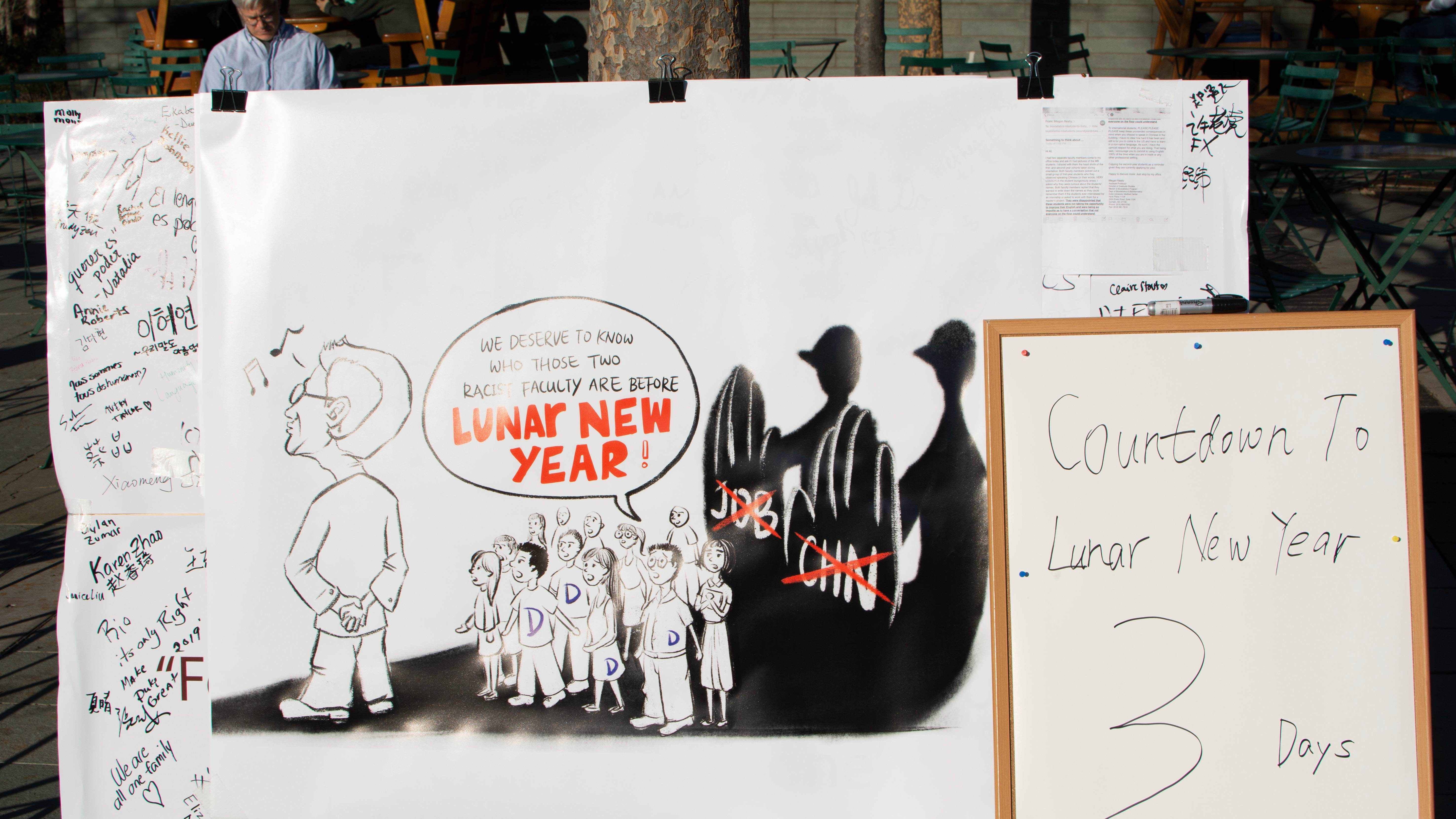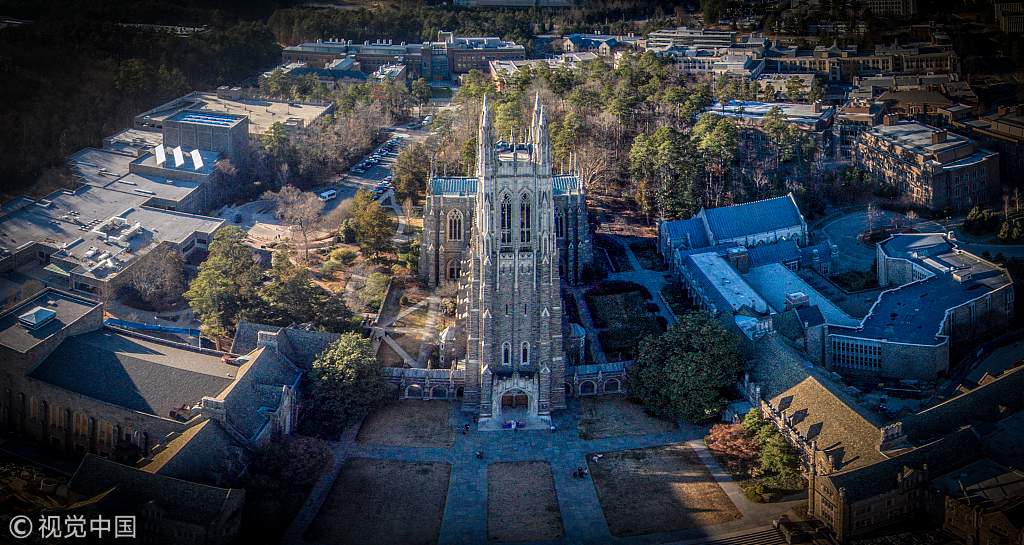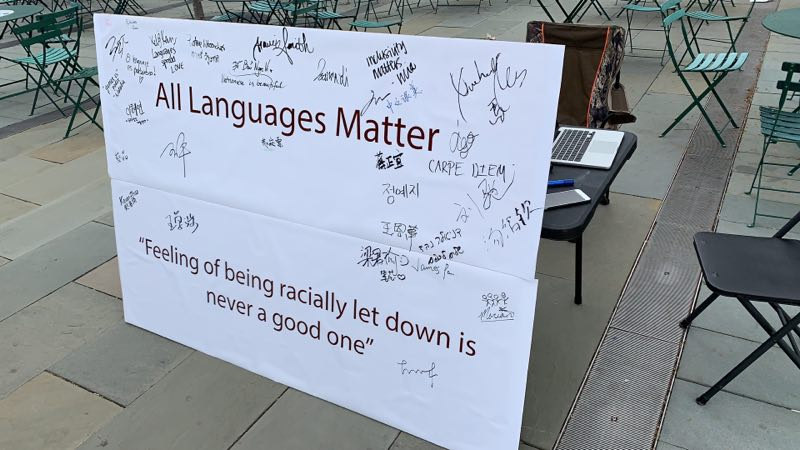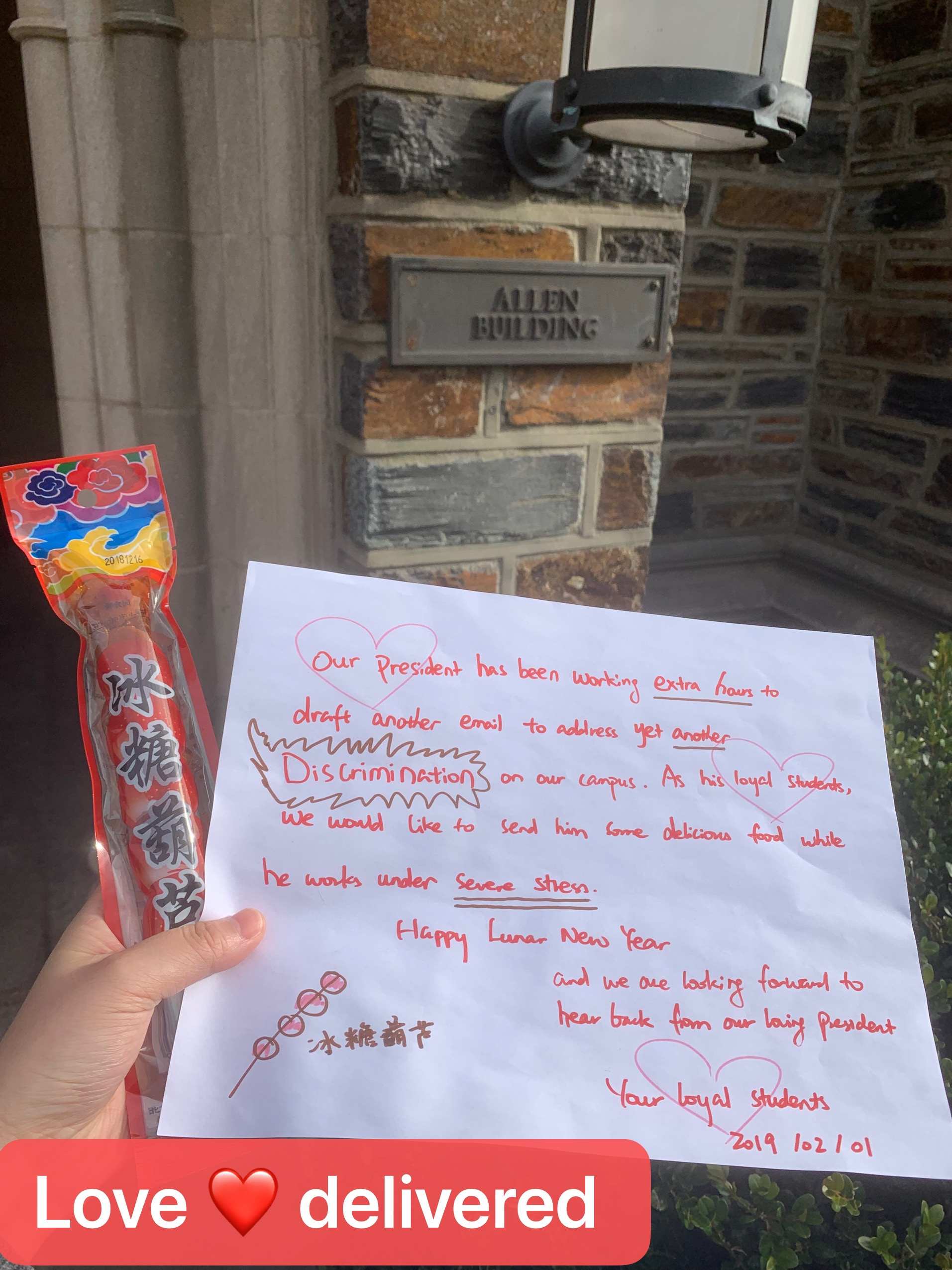
North America
09:52, 08-Feb-2019
Battle of the tongues: Chinese students at U.S. campuses
By Yu Jing

Recently, an email turned into a campus-wide controversy and its repercussions were felt across the globe.
On January 26, a Duke University professor, named Megan Neely, sent an email to about 50 biostatistics students saying that two faculty members had approached her to complain about students loudly speaking Chinese in the students' lounge. She urged international students to not speak in Chinese and commit to using English 100 percent of their time.
"They were disappointed that these students were not taking the opportunity to improve their English and were being so impolite as to have a conversation that not everyone on the floor could understand," she wrote.
Her further admonishment that students should keep "these unintended consequences in mind" when they choose to speak Chinese in the building raised the specter of discrimination among Chinese students.
In 2018, 360,000 Chinese students enrolled in American universities, becoming the largest source of international students in the U.S., however, they are still confronted with the tough reality of periodic bouts of xenophobia.
Increasingly, they take it upon themselves to defend their rights, including the right to speak their mother tongue on the campus.

An overview of the Duke University Chapel, Durham, U.S. /VCG Photo
An overview of the Duke University Chapel, Durham, U.S. /VCG Photo
'The unintended consequence' of speaking Chinese
The email quickly led to an online petition organized by a group called "Concerned Duke Students", calling for a full-scale investigation into the actions of the two unnamed professors.
"To suggest that students who speak a language other than English outside the classroom need to improve their English is in itself a discriminatory attitude," the group wrote in an email to CGTN Digitial.
They argue that there is no evidence to suggest that the targeted Chinese students find it difficult to speak English and it is normal to see even U.S.-born ethnic minorities speaking to each other in their native languages.
The dean of the medical school, in response, issued an apology and made clear that there is no limitation on the language international students use to converse with each other.
As the influx of Chinese students in the U.S. continues, the incident has sparked a larger debate about diversity and inclusion on U.S. campuses.
According to "Open Doors: Report on International Educational Exchange" published by the U.S. State Department and the Institute of International Education, the number of Chinese students studying in the U.S. has seen an upward trend from 2007-2017, increasing from 81,127 to 235,597. In 2009, China replaced India as the leading place of origin of international students in the United States.
Language has been a source of tension among other issues. Last year, the news that Chinese students' nametags were ripped from their dorm rooms in Columbia University shocked the community.
A viral video called "Say My Name" was created in which Chinese students revealed the meaning of their Chinese names to stem the rising tide of xenophobia.
"To speak the mother tongue is an important way to identify with our cultural identity and is one of our basic rights," said a committee representative of "Concerned Duke Students", adding that "the flexibility of choosing which language we speak is an intimate choice."

A "wall of support" at the Duke University campus. /courtesy of Liu Chi and Cai Jing.
A "wall of support" at the Duke University campus. /courtesy of Liu Chi and Cai Jing.
A battle long overdue
Duke alumni Shan Rui, who graduated two years ago, immediately sent an email to the university administration after reading about the incident on WeChat Duke alumni group.
His email was directed to the university president's office, the office of diversity and inclusion of the medical school and the university. Many Chinese students did the same, expressing their indignation at the school administration for what they considered as a discriminatory act, leading to the formation of the Concerned Duke Students Committee.
While professor Neely stepped down from her position as the director of graduate studies, students said that they had not received any response from the university's president on the matter.
"Such slow response is rare considering that in the past the president's office had responded to incidents in a matter of days," said Liu Chi, a fifth-year chemistry Ph.D. student at Duke.

Students posted photos of bubble tea they sent to the Duke University president, on Facebook. /courtesy of Loyal Duke Students.
Students posted photos of bubble tea they sent to the Duke University president, on Facebook. /courtesy of Loyal Duke Students.
A "bubble tea" campaign was launched in response to the university president's silence on the matter. And just a day after the first package of bubble tea was delivered to his office, he acknowledged in an email that "a series of events that have been exhausting and hurtful" happened on the campus. But to the dismay of students, he did not offer an apology.
"We are a community deeply committed to building an inclusive and welcoming environment for every member of the Duke family, regardless of their home, heritage, beliefs or language," read the president's email.
Shan argued that the battle over the right to speak Chinese on the campus is an overdue one. He remembered how he heard other Chinese students complain about unfair treatment at the campus.
He said that students from other nationalities were given preference over Chinese students in various on-campus opportunities.
The students' committee also raised another issue concerning the vice president of student affairs at Larry Moneta, Duke University, posting pictures of flavored potato chips, poor air quality rating and a squat toilet, with the caption "reasons to move to China…NOT." The committee said it reflected the administration's lack of understanding of Chinese culture.
A campus-wide debate
A heated discussion broke out on Duke students' WeChat group last Friday, shortly after professor Neely sent the controversial email to Chinese students.
36 out of 54 students at the biostatistics program are from China, according to media reports.
A few Chinese students also defended professor Neely suggesting that she had been close Chinese students.
"I can completely understand the concerns of the students in biostatistics program given that their interests are related and they are the victims of this unfortunate incident," said Liu.
Other reservations include concerns that the petition would jeopardize the investigation, if an investigation is launched at all, and would tarnish the reputation of the school.
Some students insist Duke's president Vincent Price must apologize, while others insist on a structural change in how the school administration addresses diversity and inclusion on the campus.
"At least an institutional mechanism needs to be established so that if one reports a violation of equal rights, an action could be taken immediately," Shan said.
At present, the Office of Institutional Equity at Duke is responsible for handling cases of discrimination and xenophobia. The medical school also has an office of diversity and inclusion that addresses issues of diversity.
In the immediate aftermath of the incident, discussion sessions and forums are being hosted at the university, involving the participation of school administration on the issue of language diversity.

A handwritten letter delivered to Duke president's office, urging him to address issues of diversity and inclusion. /courtesy of Loyal Duke Students.
A handwritten letter delivered to Duke president's office, urging him to address issues of diversity and inclusion. /courtesy of Loyal Duke Students.
However, the mystery over an investigation into the matter continues.
"The Office of Institutional Equality should have responded to the incident, at least tell us if an investigation committee has been established… but so far we still have no clue," said Liu.
Apart from a committee that provides accountability for similar violations, students are also asking universities to conduct cultural competency training for administrators and faculty members.
"Since I personally have not experienced discrimination on the campus I used to think that the school is welcoming toward international students but now my view has completely changed," Liu added.
(Top image: Duke students posted a sarcastic comic on the signing wall, asking its president to launch an investigation before the Lunar New Year. /courtesy of Wei Wei.)

SITEMAP
Copyright © 2018 CGTN. Beijing ICP prepared NO.16065310-3
Copyright © 2018 CGTN. Beijing ICP prepared NO.16065310-3